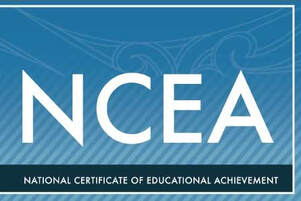Background
Only organisations with "consent to assess" (student work) and "consent to access" (the framework) are permitted to assess work, determine whether it meets the requirements to gain the credits attached to the unit of work, and upload the results to the framework. These organisations are typically: most secondary schools, most tertiary education organisations, and other approved education providers. There are NO homeschool organisations with consent to assess/access, and so home educated students must have work assessed by one of the approved providers in order to gain credits and have them added to their learning record on the NZQF (NZ Qualifications Framework, which is controlled by NZQA).
NCEA & U.E in a Nutshell
NCEA is changing, and these changes are being rolled out over the next several years. The timeline has been adjusted several times, to this may be subject to further changes. As of now (July 2023), the following applies:
Students entering Level 1 in 2024 will be under the new system for Level 1, which is that they will need to gain 60 Level 1 credits, plus 20 literacy/numeracy credits.
These literacy/numeracy credits will be gained by sitting a Common Assessment Activity (CAA) which is an external exam done online at schools, offered at least twice (possibly more) per year. Once the new NCEA system is fully rolled out, ALL NCEA students will need to pass the CAA in order to be awarded any level of NCEA, though they can attempt it as many times as needed in order to pass. HOWEVER...
For 2024 and 2025, students will also be able to gain the required literacy and numeracy credits through an alternative set of assessment standards. There has been considerable concern expressed about the NCEA changes, which has resulted in this temporary allowance, among other tweaks to the timeline. I don't yet have information on what these assessment standards will be, though I suspect they'll be a continuation of the current lit/num standards in the meantime, or something very similar.
Students entering Level 2 in 2024-2025 will still be under the present system, which is that they must gain 60 credits at Level 2 or above, plus 20 credits at any level, while also meeting the Level 1 literacy/numeracy requirements (which is what usually comprises the extra 20 credits).
Students entering Level 2 from 2026 onwards, will be under the new system, which is that they must gain 60 Level 2 credits, plus have passed the CAA exam.
Students entering Level 3 in 2024-2026 will still be under the present system, which is that they must gain 60 credits from Level 3 or above plus 20 credits from Level 2 or above (these can be previously earned "carry over credits") and must also have met the Level 1 literacy/numeracy requirements.
Students entering Level 3 from 2027 onwards will be under the new system - requiring 60 Level 3 credits, plus have passed the CAA exam.
- NCEA Level 3
- 14 credits at Level 3 in each of three approved subjects
- Literacy - 10 credits at Level 2 or above, made up of:
- 5 credits in reading
- 5 credits in writing
- Numeracy - 10 credits at Level 1 or above, made up of:
- achievement standards – specified achievement standards available through a range of subjects, or
- unit standards - package of three numeracy unit standards (26623, 26626, 26627- all three required), or
- numeracy unit standard 32406 OR te pāngarau unit standard 32412. (these are for students in 2022-2023 only)
More information about the NCEA change programme, approved standards, NCEA in general and University Entrance can be found at the following websites: (There's quite a bit of cross over in internal links between the above three sites currently).
Gaining NCEA Credits via a Link School - the theory
What is not immediately clear in reading them is HOW they apply to home educated students, and whether there are any significant changes on previous years, so after some digging, and some emails with NZQA (it only took them 6 months to answer me, hence the delay in publishing this article!), here's what you need to know:
- Home-schooled students and other persons who are not enrolled in a School are only eligible to be assessed against standards [for credit] or enter in a New Zealand Scholarship subject through linking with a School with Consent to Assess.
- There is no obligation on the part of any School to act as a Link School for home-schooled students wishing to enter for standards assessment or enter a New Zealand Scholarship subject.
- Home-schooled students wishing to enter for assessment standards or enter a New Zealand Scholarship subject must do so through a Link School using the appropriate form (see below)
- A home-schooled student must meet all entry and eligibility criteria as specified in the Assessment Rules for Schools with Consent to Assess 2022 and are subject to the requirements of those Rules.
- A home-schooled student who wishes to enter for New Zealand Scholarship must not have completed their secondary education in a previous year and must attest to their eligibility through a Justice of the Peace.
- Before accepting an entry for any unit or achievement standard from a home-schooled student or other person, the Principal's Nominee of the School must be satisfied that the assessment programme undertaken by the home-schooled student is:
- fair, valid, reliable, and consistent nationally with the assessment Standard; and
- all work presented for assessment by the student or other person is authentic.
- The Link School must carry out the necessary administration tasks for entering home-schooled students in examinations or other external assessments.
- The home-schooled student's results must be processed along with other students’ results from the Link School.
- A School which agrees to link with and / or perform other services for students who are home-schooled may make arrangements necessary to do so, including for any administrative costs.
Note that internal assessment is where the student completes work that is then assessed by a teacher at the school. External assessment is where the student sits exams (which are marked via NZQA). The new CAAs are externals, though they are sat at different times of year to the other external exams, which are held in set blocks near the end of the year.
Gaining NCEA Credits via a Link School - in practice
The reality is that getting a high school to agree to be a link school for external exams is usually not too difficult. In such cases, all they need to do is take care of a little paperwork, order the examination papers for the student, ensure they have a place to sit in the exams, collect the papers afterwards and send them in. They're doing this for 100s of other students and one more is no big deal. They also routinely do this for Te Kura students, so are relatively familiar with the process. Making an appointment to see the Principal's Nominee and discussing it and completing the paperwork is often all it takes.
However, finding a school willing to act as a link school for internal assessment is a completely different matter. Most schools consider themselves too busy with their own students and don't want to even think about this. And if they are more willing, they will have questions like - what are they assessing? Who sets/decides the work? How does it align with the assessment standards? How do they know the student has not cheated? etc. By the way, there are no set answers to these questions - they are all matters for discussion/negotiation. The result is that it is rare for a school to agree to provide internal assessment for home educated students. The Ministry is convinced that most schools should be willing to do so, but this has never been the reality.
One of the most common questions in light of the above is: can a student attain NCEA via external credits only? The answer to this is - possibly. Each set of external exams includes several papers, each one examining a certain assessment standard, and each worth a set number of credits. You can find out the details of exams and credits for each subject on the NZQA website. It takes a bit to get your head around the details and how to find things on the website, but to give an example, I can see that the Level 1 Science exam for 2023 will include the following:
- 90940 - Demonstrate understanding of aspects of mechanics - 4 credits
- 90944 - Demonstrate understanding of aspects of acids and bases - 4 credits
- 90948 - Demonstrate understanding of biological ideas relating to genetic variation - 4 credits
Remember that for each paper you plan to have your student sit, they need to have completed suitable learning/work ahead of time to prepare them to sit that specific paper.
So the answer to the question of whether a student can gain NCEA (and/or U.E) via exams only needs to be worked out based on:
- What subjects they will do
- What papers are within the exams they will sit, and which ones they will be prepared for/ready to sit
- The total number of credits available this way
Other ways to gain credits and NCEA
Some ways that students may gain credits and/or complete NCEA other than via secondary schools include:
- STAR courses - these are short (around 4 month) courses offered by various providers. STAR stands for "Secondary Tertiary Alignment Resource" and most of these courses are offered by universities or polytechs to secondary students. While websites may say there are no fees, that applies to students enrolled in schools, as govt funding for STAR courses is provided through schools. Home educating families will have to pay for these courses if they wish their students to enroll. These courses are for capable Year 12&13 students and are at first year university level.
- Gateway courses - these are structured workplace-based learning programmes for Year 11-13 students, typically overseen by Industry Training Organisations (ITOs). Again, they are funded for students in school, but home educators need to pay for them. An example would be MITO's StartUp programme, where students would spend time in an automotive workplace (parents need to arrange this), usually one day per week. They would have specific coursework/assignments to complete, and there are specific activities they have to complete and be assessed on by a suitable workplace supervisor and/or ITO assessor.
- Foundation Studies - these are courses via tertiary providers aimed at school leavers who have not completed NCEA Levels 1 or 2. Generally these are not ideal for secondary students, as they really are aimed at adults with little educational background, and the content may not be very interesting. For this reason, some providers, such as Open Polytech, will no longer allow home educated students to enroll in these courses, but some providers may still do so.
- Enrolling in Te Kura under the Young Adult gateway - this is free for 16-19 year olds who are not enrolled in school, and enables students to work towards NCEA. If a home educated students is enrolled full time in Te Kura (3 or more subjects) their exemption and homeschooling supervision allowance ends, but on the other hand, they are then eligible for funded access to STAR and Gateway courses. Working via Te Kura is also good for students who don't want to sit exams, but wish to gain NCEA via internal assessment only. This is possible for most levels of NCEA, though it may be more difficult to attain U.E via internal assessment only, due to the need to gain at least 14 credits in each of 3 approved subjects.
- Pre-trade and primary industry courses - these are full time programmes for students who are 16+ (15yos with exemptions may be accepted), in which the students are attending in person, working on both practical and academic requirements. They are aimed at students wanting to attain Level 2 and the skills to enter an apprenticeship or similar. There are various providers around the country. Some providers also offer shorter distance courses to give students a taste and help them gain a few credits.
- Additional credit-earning courses. Many short courses in various things have some credits attached. For example, completing a St John first aid course would gain the student some credits. There is a directory of education providers HERE - once you see who is on it, you can look up the websites of the ones you are interested in to find out more about what they offer.
Summary & Conclusion
NCEA credits can only be gained on work that is assessed and recorded by an approved education or training provider, who are deemed to have "consent to assess" (the work) and "consent to access" (the qualifications framework). Credits are attached to units of work, known as "standards" which may be internally or externally assessed. Home educated students can have an arrangement with a local high school to act as a "link school" for assessment purposes; most often they are only willing to do so for external assessments (exams).
Students can also gain credits by completing courses through alternative institutions and/or training providers.
Getting to grips with NCEA and how it all works is akin to learning a whole new language. Don't be discouraged if you found some of the terms used above confusing, or you are having trouble wrapping your head around how it all comes together. This takes time! The same can be said for any qualification system - they each have their own terms, requirements and processes.



 RSS Feed
RSS Feed
